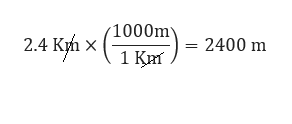This are topics that will come in my quiz. Can you give me one example of each? perform calculations using factor-label, unit analysis, conversion factor method (ch. 1) identify compounds as molecular or ionic from formula and electronegativity trends on period table compare, contrast physical properties of ionic vs. molecular compounds write formulas for "complicated" ionic compounds write names of "complicated" ionic compounds polyatomic ions WILL be included in this quiz (polyatomic ions include ammonium, carbonate, chlorate, hydroxide, nitrate, nitrite, phosphate, hydrogen phosphate, sulfate, sulfite...) Identify compounds as acids or bases
This are topics that will come in my quiz. Can you give me one example of each? perform calculations using factor-label, unit analysis, conversion factor method (ch. 1) identify compounds as molecular or ionic from formula and electronegativity trends on period table compare, contrast physical properties of ionic vs. molecular compounds write formulas for "complicated" ionic compounds write names of "complicated" ionic compounds polyatomic ions WILL be included in this quiz (polyatomic ions include ammonium, carbonate, chlorate, hydroxide, nitrate, nitrite, phosphate, hydrogen phosphate, sulfate, sulfite...) Identify compounds as acids or bases
Chemistry
10th Edition
ISBN:9781305957404
Author:Steven S. Zumdahl, Susan A. Zumdahl, Donald J. DeCoste
Publisher:Steven S. Zumdahl, Susan A. Zumdahl, Donald J. DeCoste
Chapter1: Chemical Foundations
Section: Chapter Questions
Problem 1RQ: Define and explain the differences between the following terms. a. law and theory b. theory and...
Related questions
Question
This are topics that will come in my quiz. Can you give me one example of each?
- perform calculations using factor-label, unit analysis, conversion factor method (ch. 1)
- identify compounds as molecular or ionic from formula and electronegativity trends on period table
- compare, contrast physical properties of ionic vs. molecular compounds
- write formulas for "complicated" ionic compounds
- write names of "complicated" ionic compounds
- polyatomic ions WILL be included in this quiz (polyatomic ions include ammonium, carbonate, chlorate, hydroxide, nitrate, nitrite, phosphate, hydrogen phosphate, sulfate, sulfite...)
- Identify compounds as acids or bases
Expert Solution
Step 1
Hi there, as there are multiple questions posted. We are answering the first question. If you need further questions to be answered please repost the question with specific question number.
Step 2
Factor method:
The factor-label method is a technique for converting units of measurement into other units of measurement.
The technique uses conversion factors that are made from equalities between units. The conversion units are arranged in fraction form in such a way as to cancel all other units except the desired unit.
Ex: Converting 2.4 Km to meter.

Step by step
Solved in 4 steps with 4 images

Knowledge Booster
Learn more about
Need a deep-dive on the concept behind this application? Look no further. Learn more about this topic, chemistry and related others by exploring similar questions and additional content below.Recommended textbooks for you

Chemistry
Chemistry
ISBN:
9781305957404
Author:
Steven S. Zumdahl, Susan A. Zumdahl, Donald J. DeCoste
Publisher:
Cengage Learning

Chemistry
Chemistry
ISBN:
9781259911156
Author:
Raymond Chang Dr., Jason Overby Professor
Publisher:
McGraw-Hill Education

Principles of Instrumental Analysis
Chemistry
ISBN:
9781305577213
Author:
Douglas A. Skoog, F. James Holler, Stanley R. Crouch
Publisher:
Cengage Learning

Chemistry
Chemistry
ISBN:
9781305957404
Author:
Steven S. Zumdahl, Susan A. Zumdahl, Donald J. DeCoste
Publisher:
Cengage Learning

Chemistry
Chemistry
ISBN:
9781259911156
Author:
Raymond Chang Dr., Jason Overby Professor
Publisher:
McGraw-Hill Education

Principles of Instrumental Analysis
Chemistry
ISBN:
9781305577213
Author:
Douglas A. Skoog, F. James Holler, Stanley R. Crouch
Publisher:
Cengage Learning

Organic Chemistry
Chemistry
ISBN:
9780078021558
Author:
Janice Gorzynski Smith Dr.
Publisher:
McGraw-Hill Education

Chemistry: Principles and Reactions
Chemistry
ISBN:
9781305079373
Author:
William L. Masterton, Cecile N. Hurley
Publisher:
Cengage Learning

Elementary Principles of Chemical Processes, Bind…
Chemistry
ISBN:
9781118431221
Author:
Richard M. Felder, Ronald W. Rousseau, Lisa G. Bullard
Publisher:
WILEY